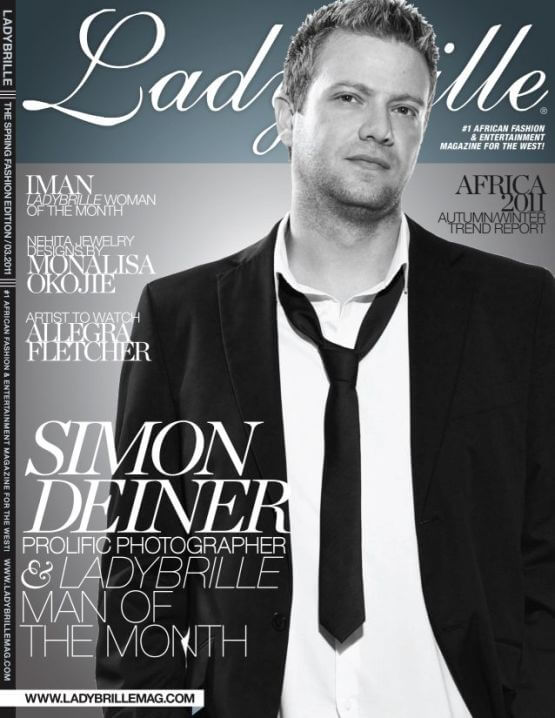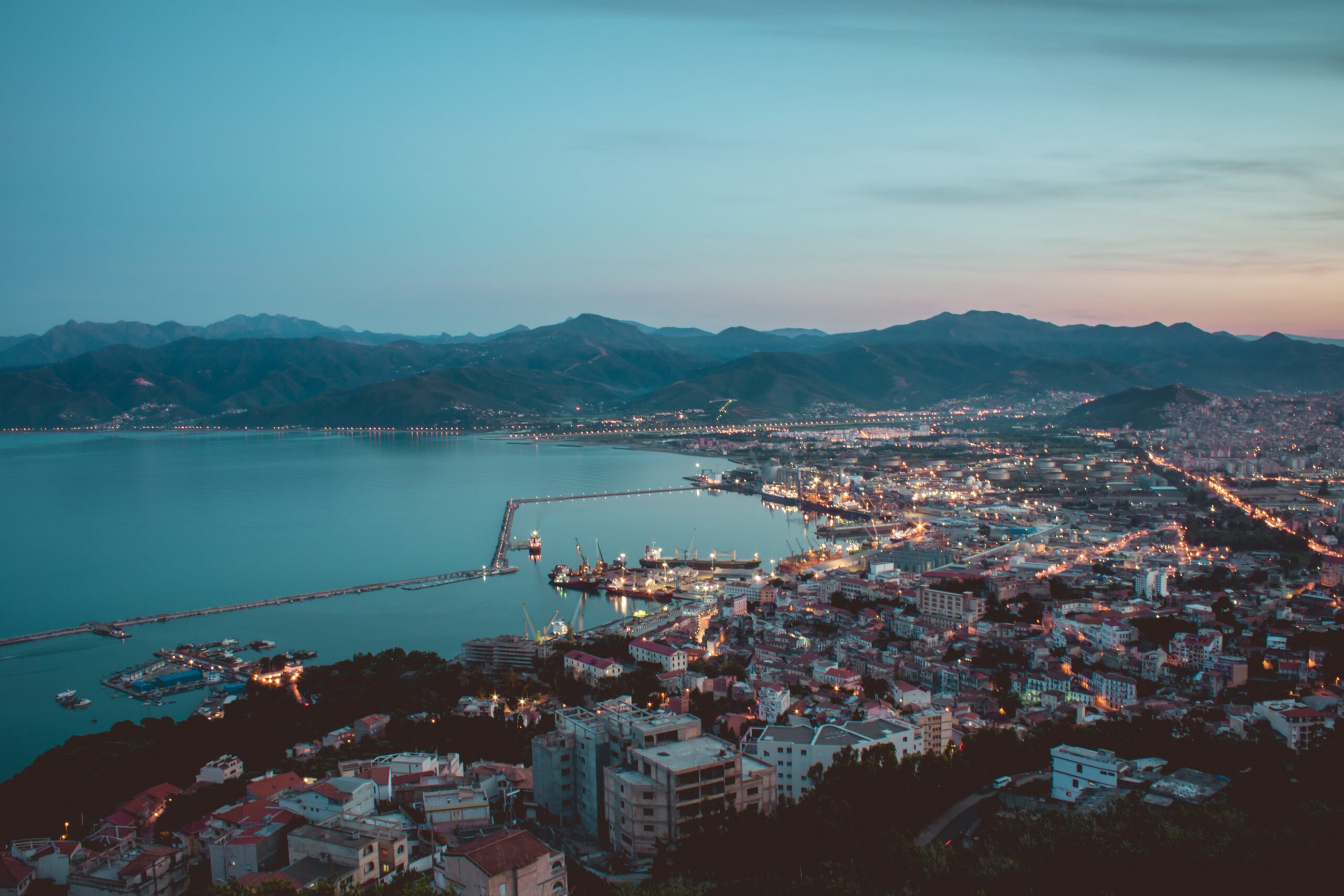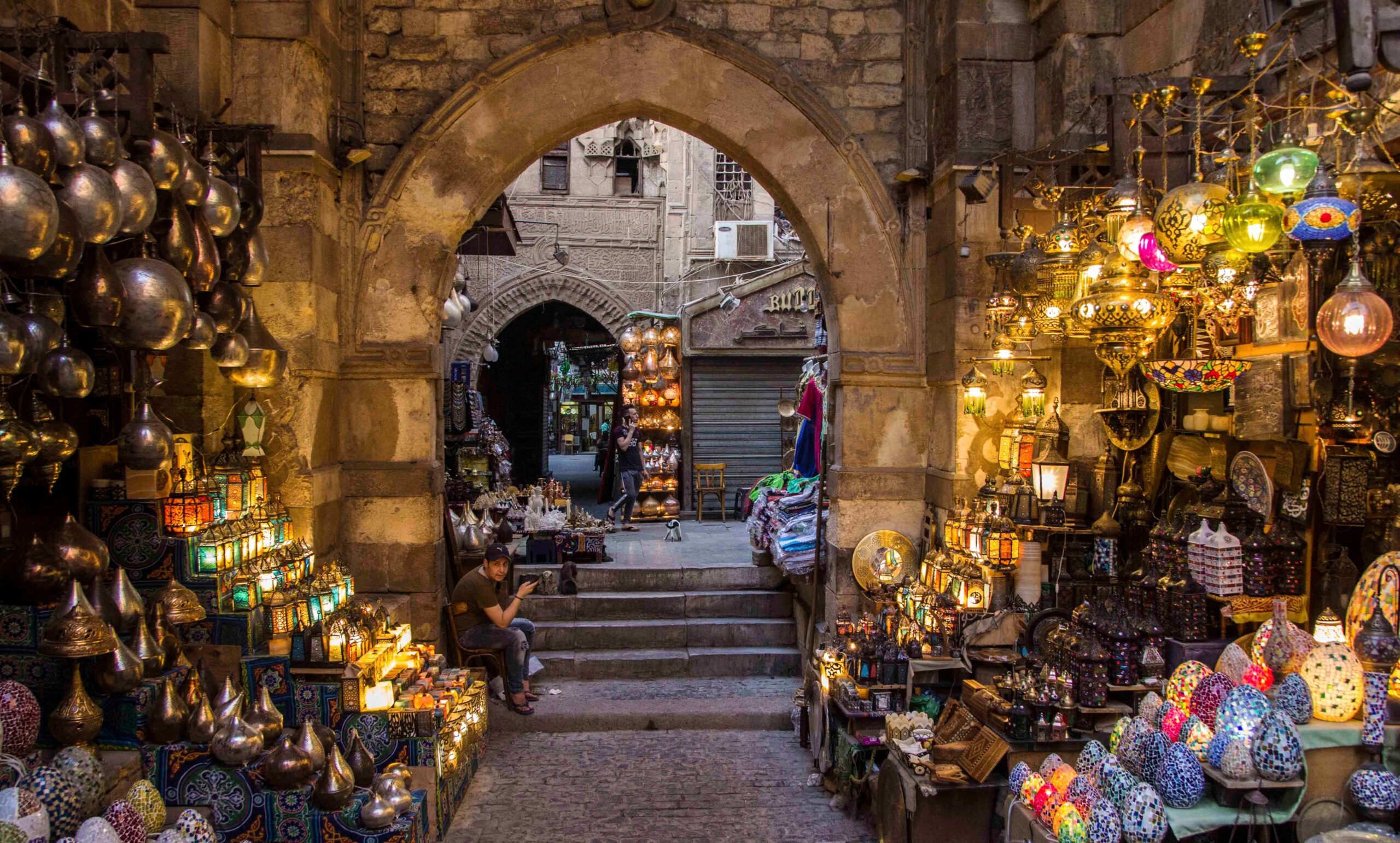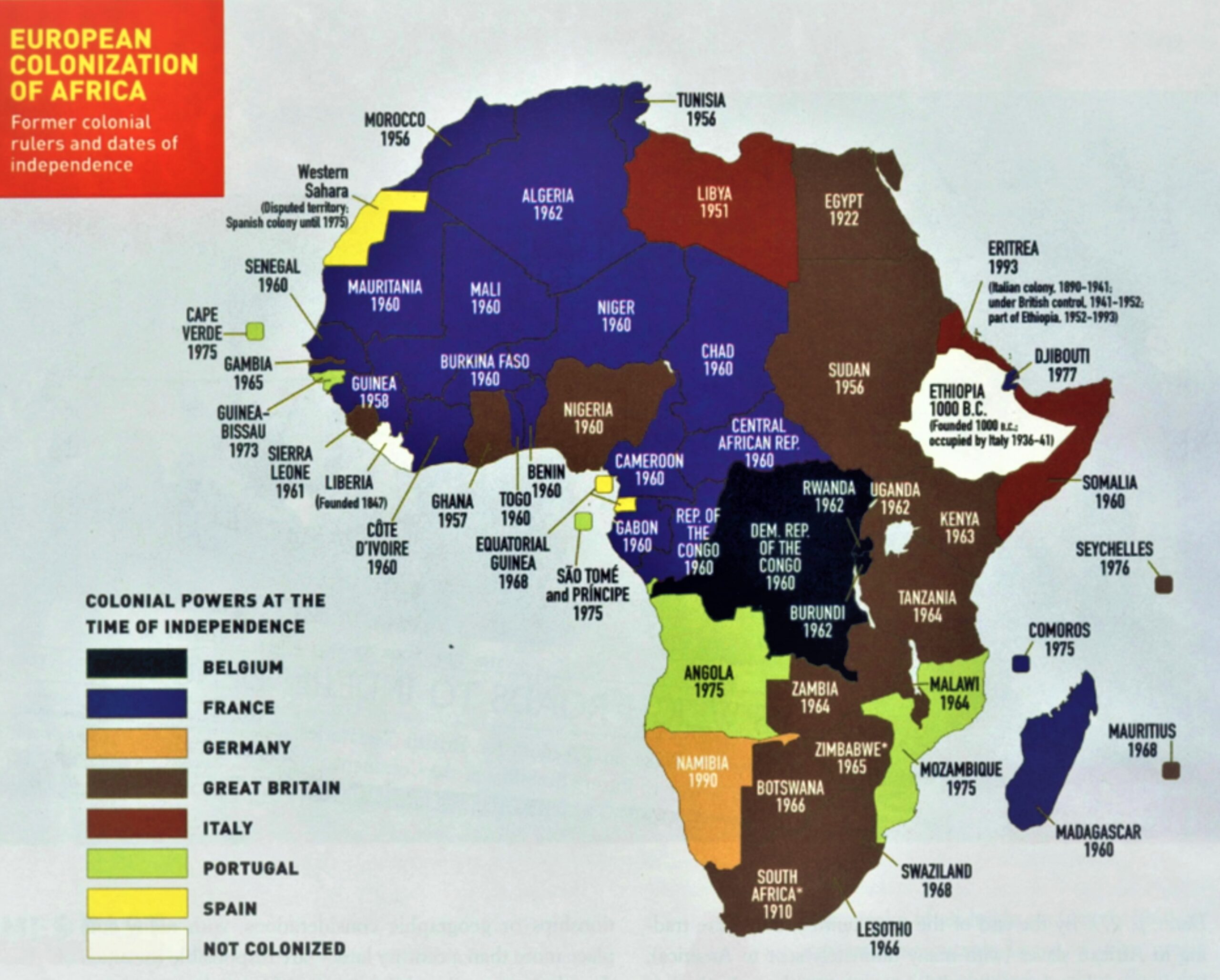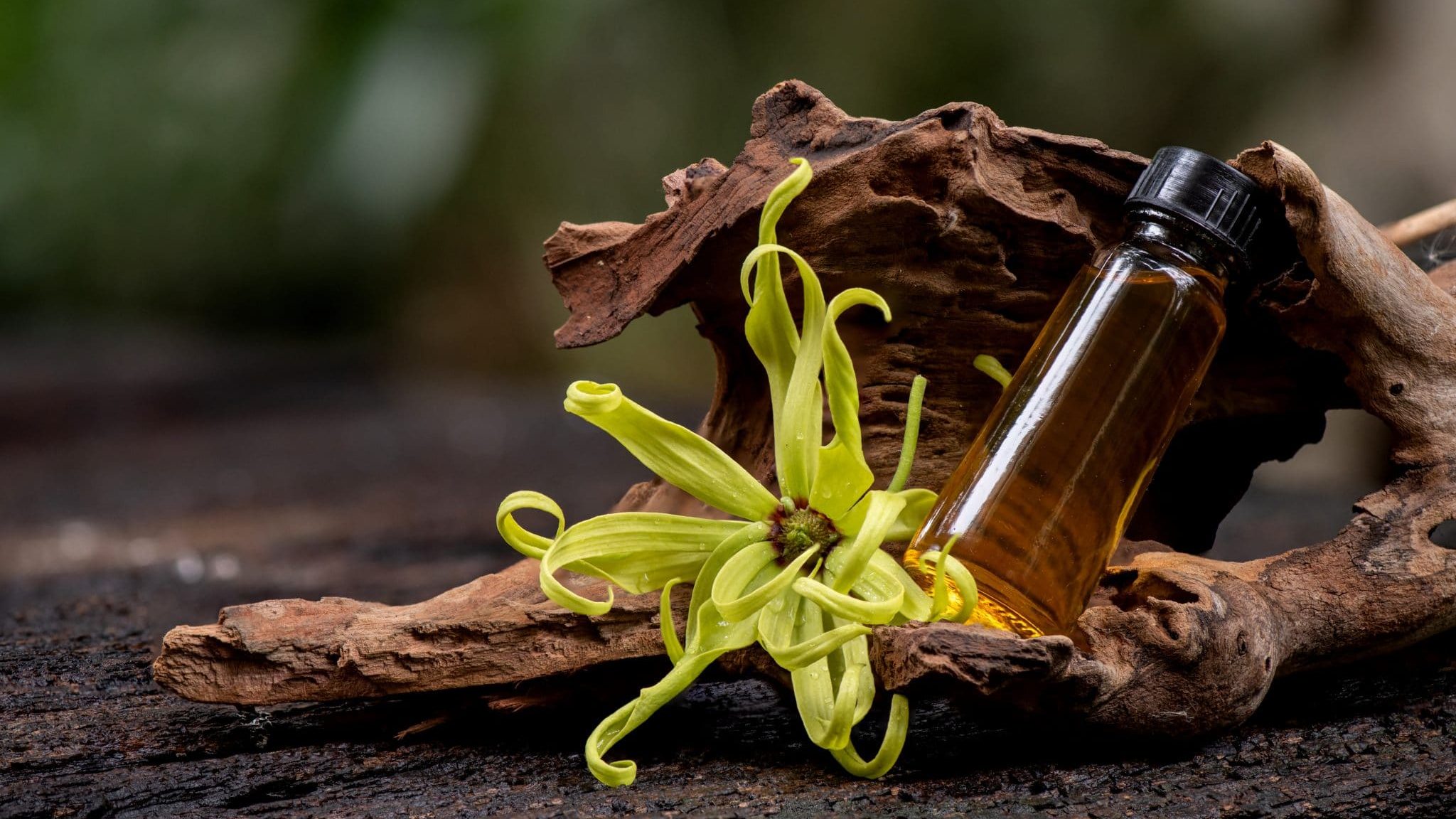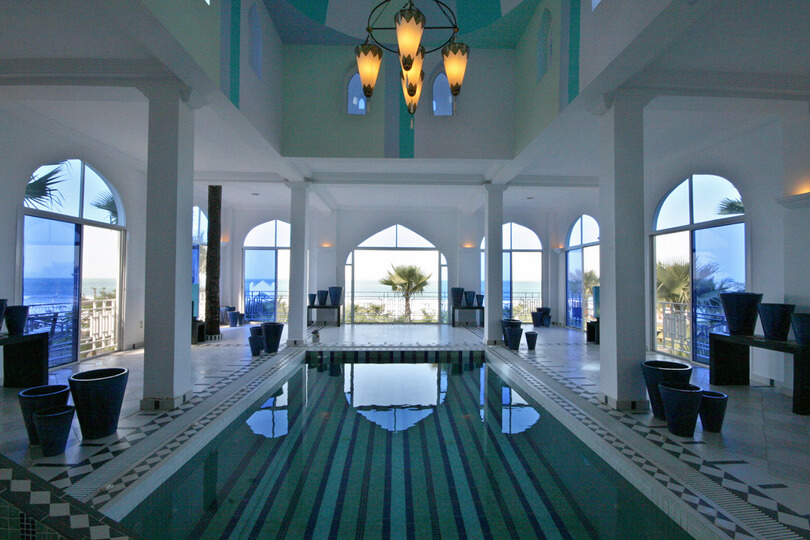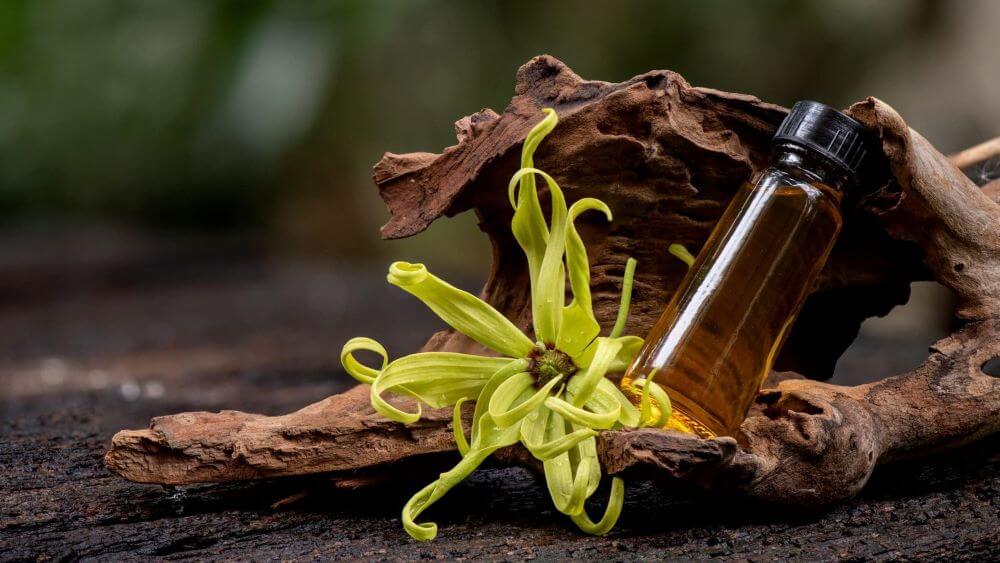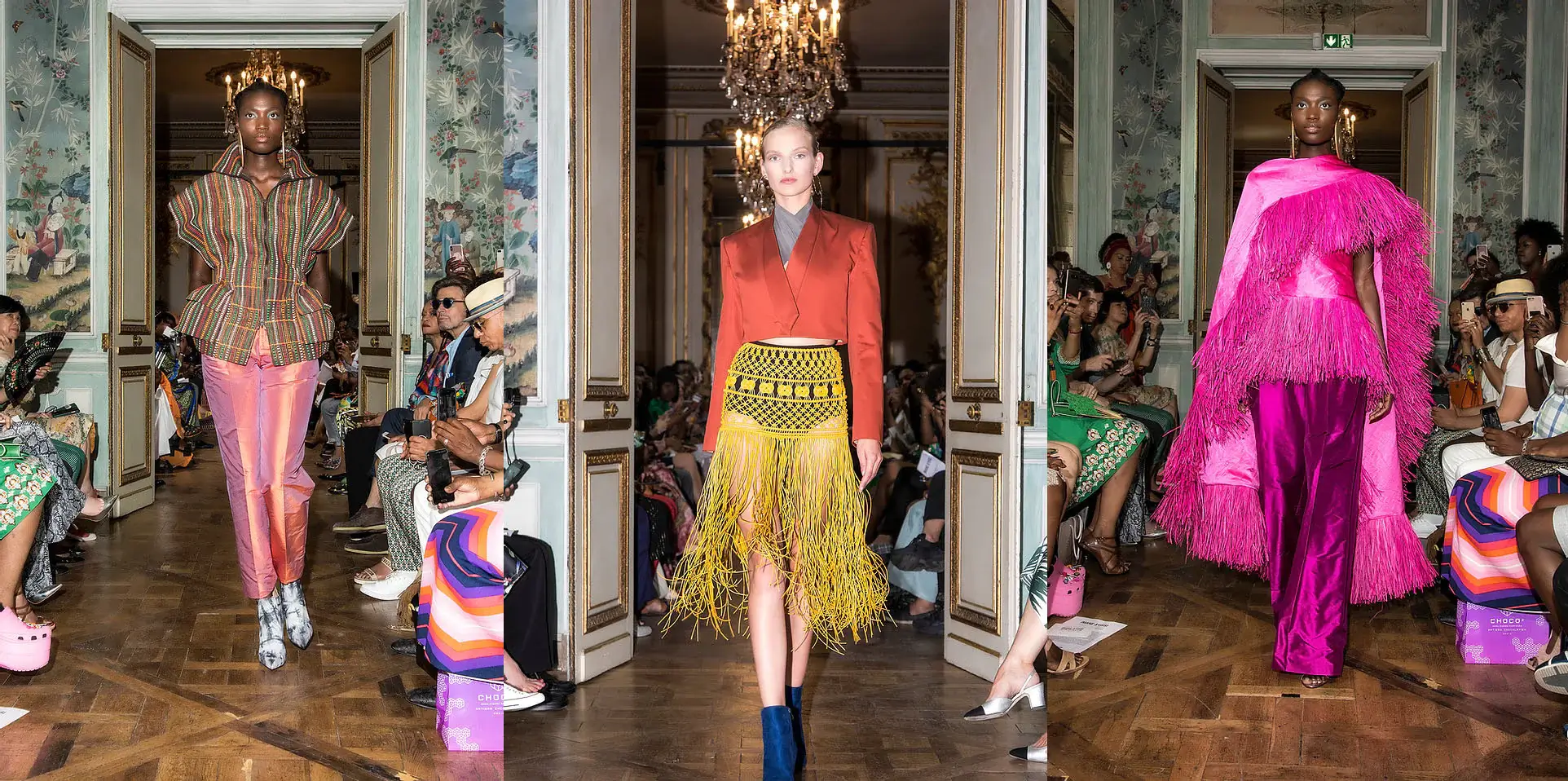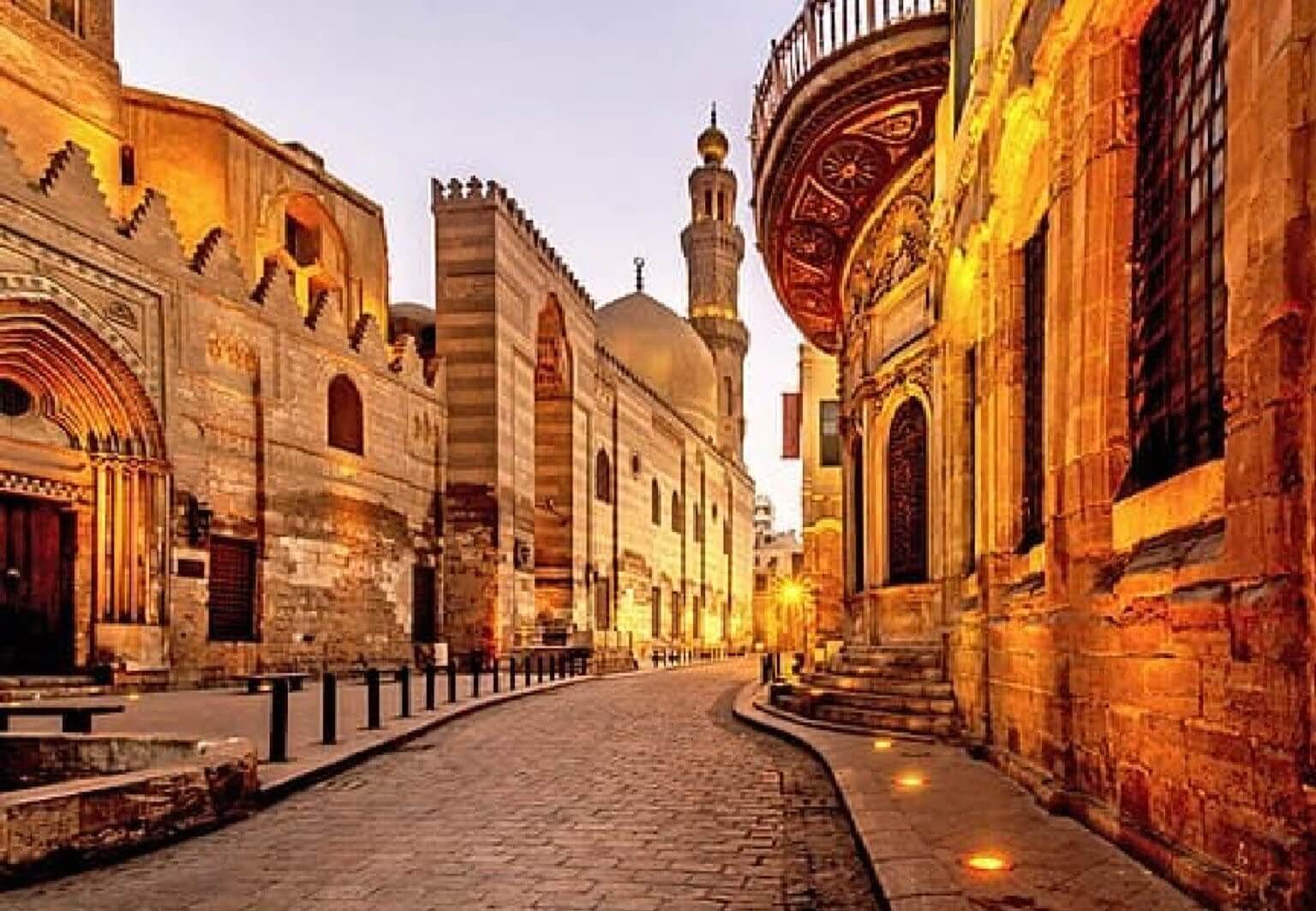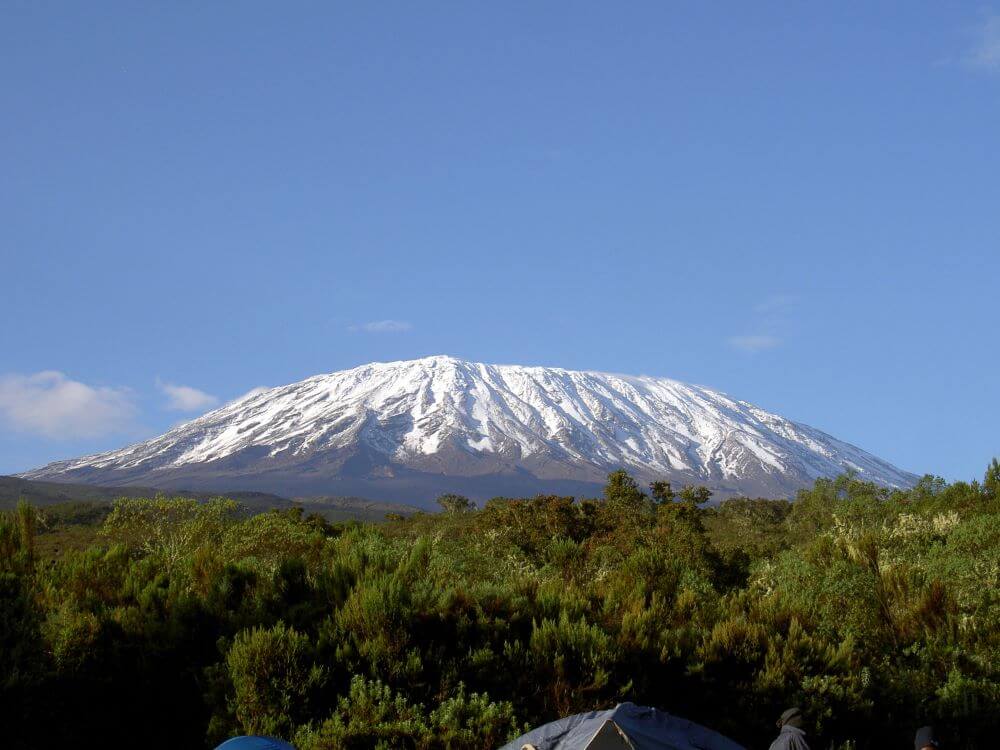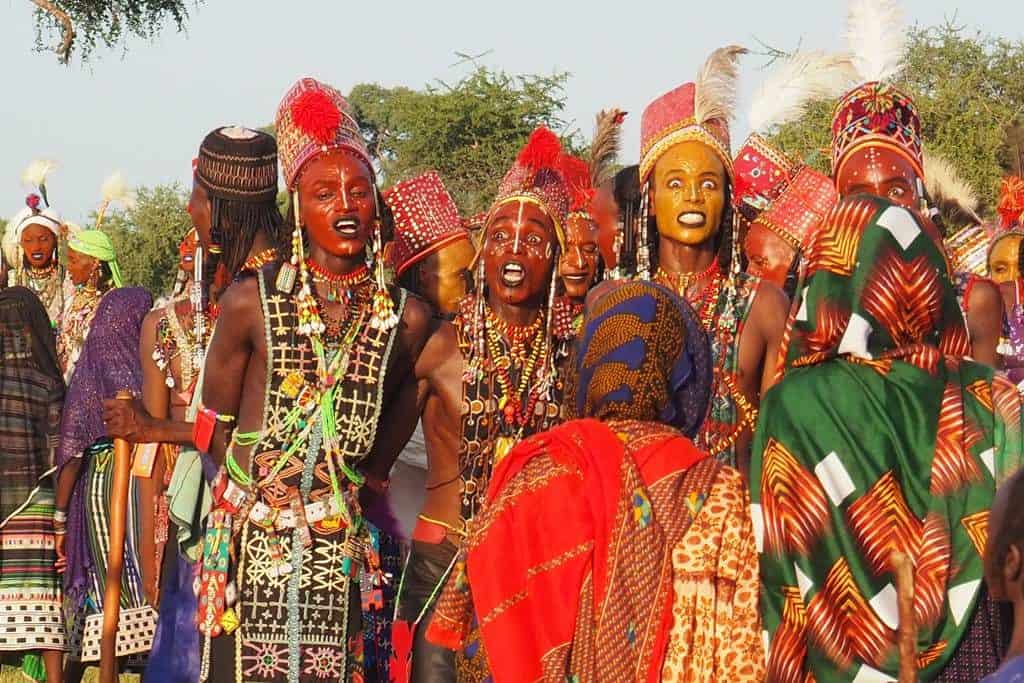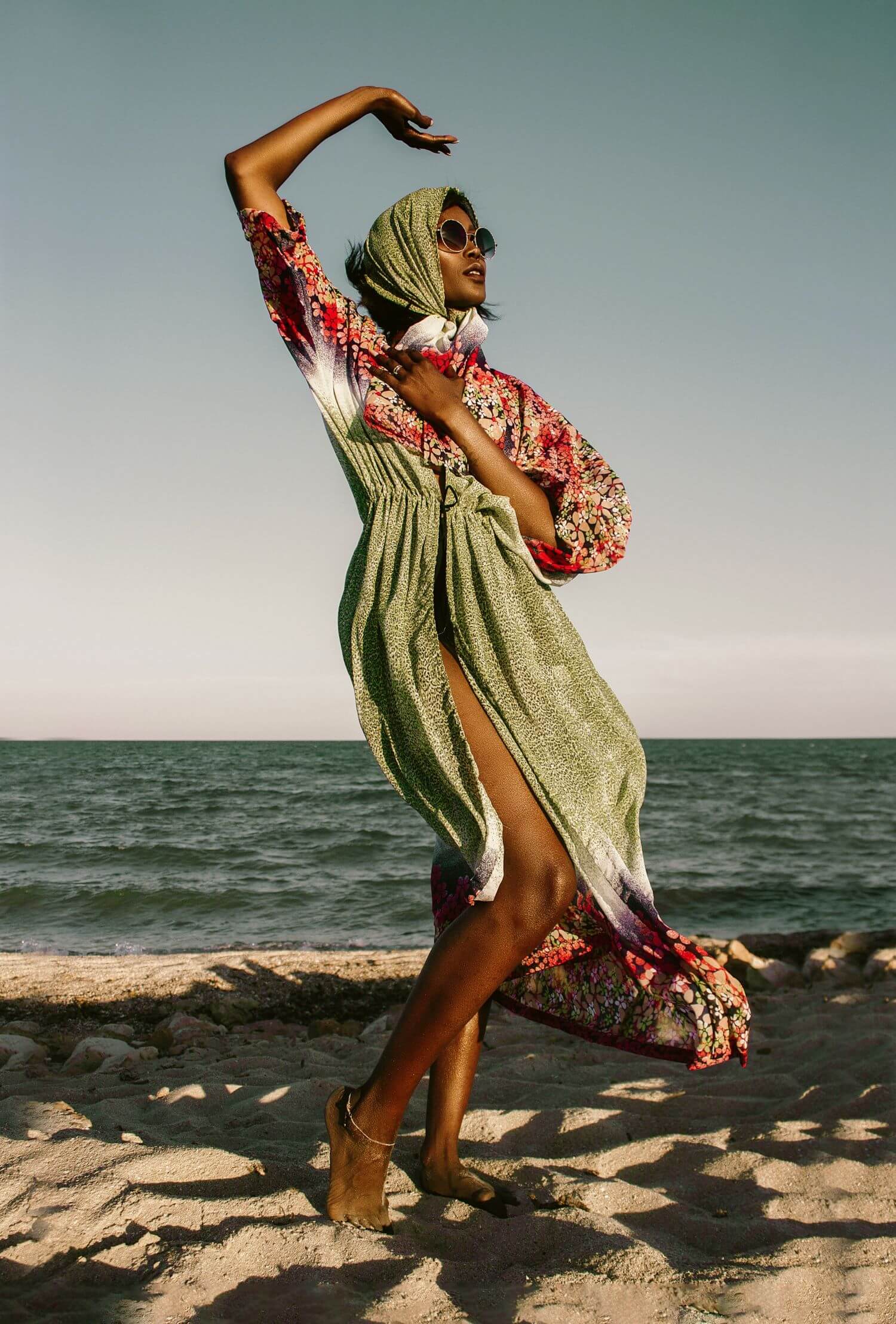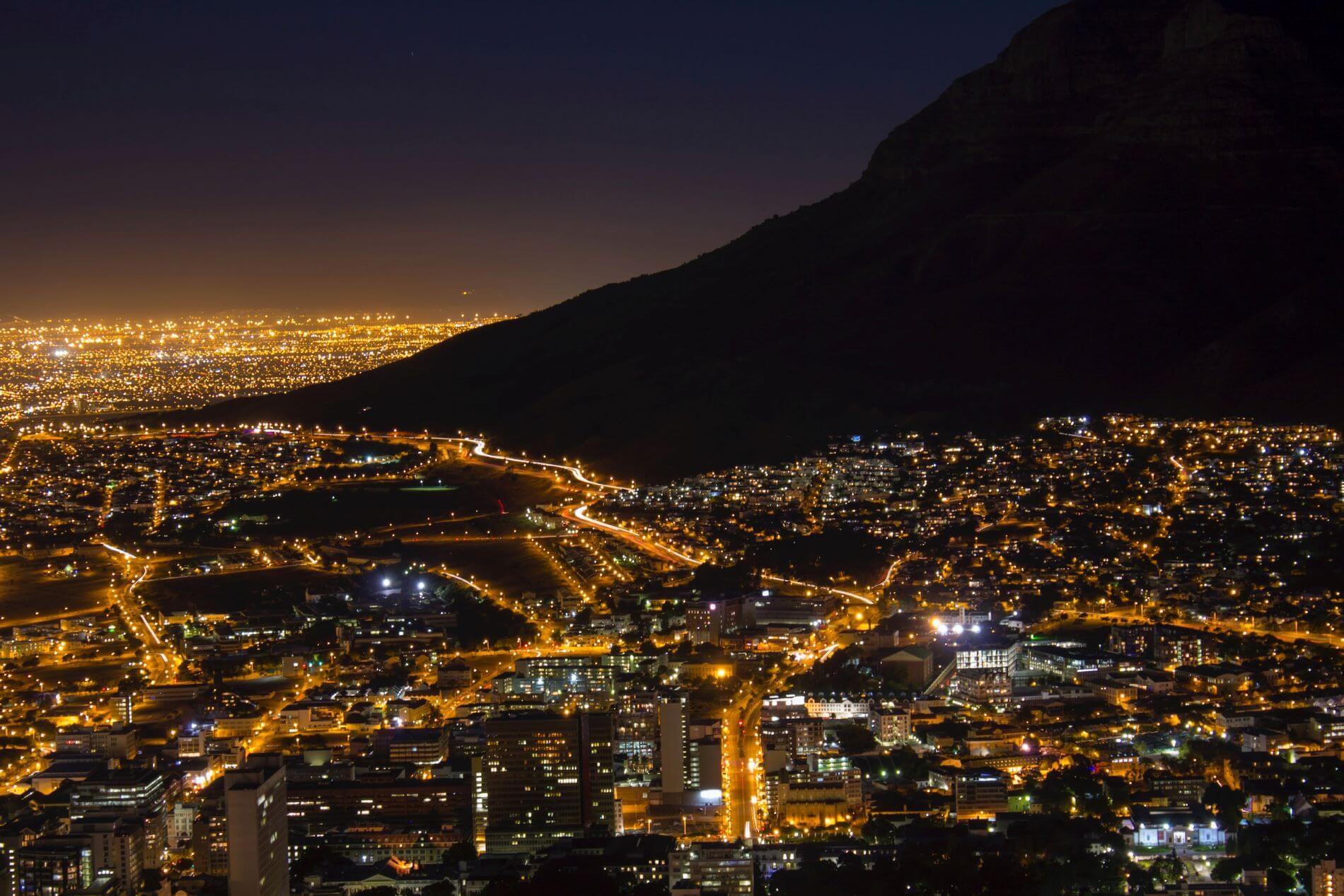SA Menswear Fashion Week Co-Founder and Creative Director Simon Deiner Talks Africa Designers, Fashion Weeks, and More with AT&L
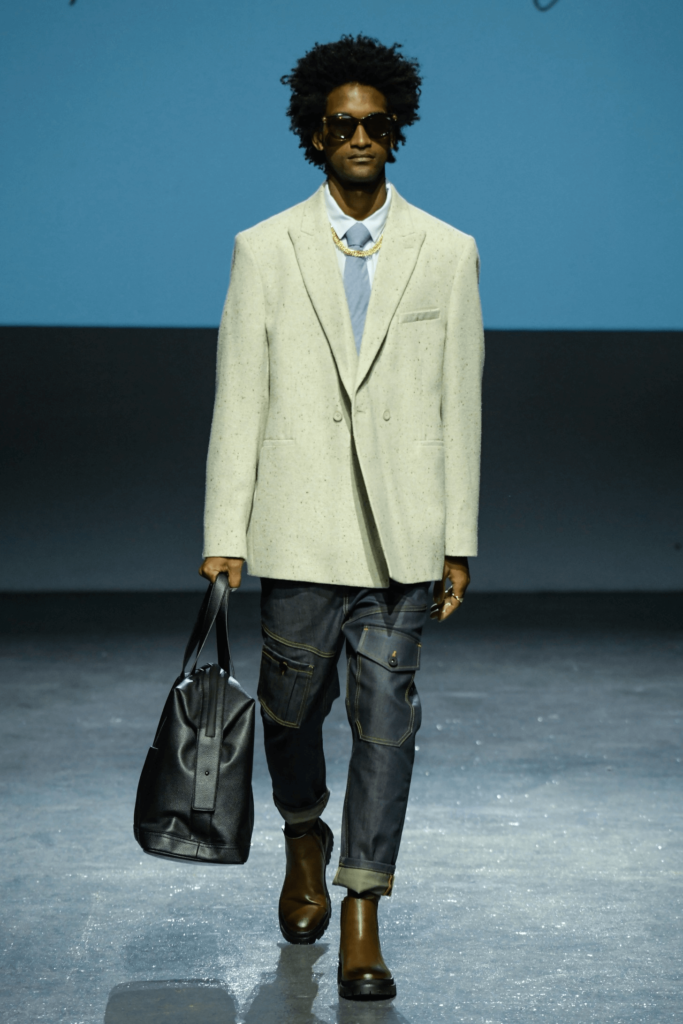
As we launch the all-new Africa Travel and Life print and online magazines with a focus on lifestyle and travel, we take a deeper look at the African fashion industry by getting insights on where African fashion is, where it’s going, who the key players are, and the recently held SA Menswear Fashion Week.
Simon Deiner, co-founder and creative director of SA Menswear Fashion Week, is a leader in the burgeoning African fashion industry. He recently spoke with Hesta Baker, Editor-in-Chief of Africa Travel and Life.
Baker: Simon, where are you from and where did you grow up?
Deiner: I’m from Cape Town, South Africa, where I grew up, and where I’ll probably die (laughs). I’m a Cape Town person through and through. When you are young you want to see the world, and the more you spend time in other places, you realize how lucky you are to be here.
Baker: When did you enter the fashion industry and how?
Deiner: I’m not a fashionista. I’ve been called Elle Magazine’s Worst Dressed Person twice. It was a joke award, but I always say it is my crowning achievement in fashion (laughs). I am an outsider. I didn’t study anything creative. I’ve been involved in fashion weeks for 21 years. My mother distributed swimwear, and every year we would do a big trade show for buyers. While I was in school, I always helped with that. It was so long ago that I remember loading music on cassette tapes from a brand-new Michael Jackson album. That’s how far I go back. It was crazy.
It was 2003, and we were working in brand management. I am a brand strategist. We were focusing on Cape Town Fashion Week, and I was sitting there thinking it was so boring. I was trying to get out of the corporate space, in meetings all day, in a button-up shirt. I saw photographers at the end of the catwalk laughing and having fun. I had a camera in my car because I was shooting fashion as a hobby then, and one ticket for that one show. I went to the car, got my camera, and hung out at fashion week for a few days. The security did not ask me for my accreditation. After that show, I was asked the following year to shoot for that fashion week.
Then it took off from there. We started shooting, and I focused on fashion weeks. It was the beginning of digital, and we built a library system for one of our corporate projects. I thought I should bring this into fashion and put all the clients we were doing online. I began to put content online, and it grew from there. I was shooting at the shows and noticed that the lighting was so bad, so I started spending time with lighting directors, learning. I started doing the technical direction of the lighting for shows. Then I noticed the set was bad. We started working on the set and then began fixing the choreography. My ex-wife, Jen Deiner, who is our head show producer, and I launched our production company 12 years ago. We now produce all the biggest fashion weeks – Lagos, Swahili, London, and are in 13 countries.
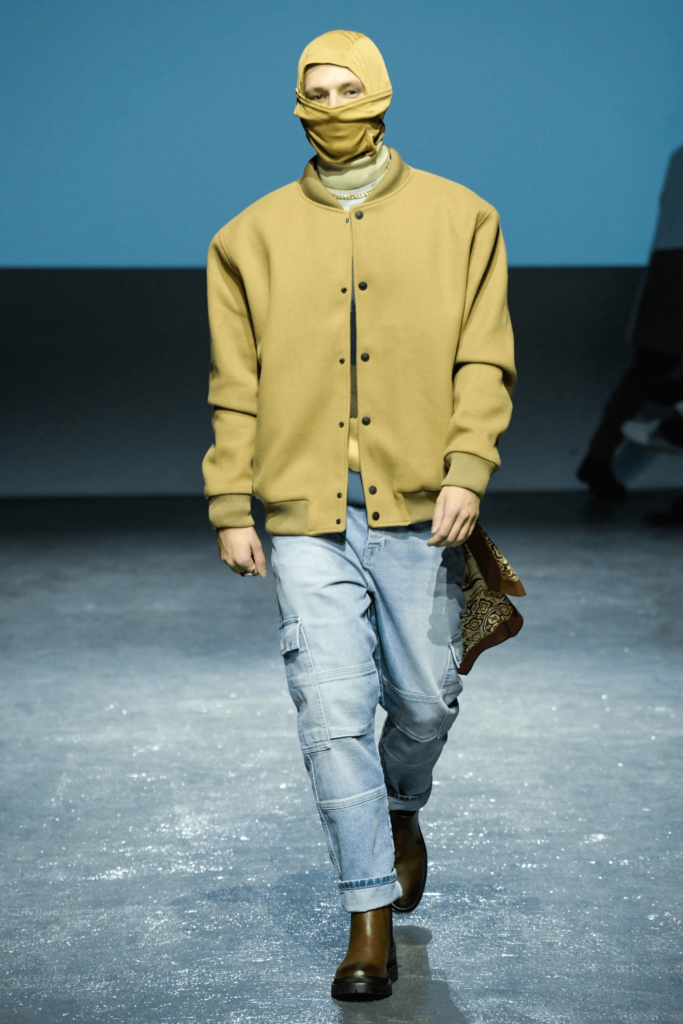
We started to bring technology in and now have an app that runs and manages fashion weeks, which we licensed to production companies globally. So, there are a lot of big shows that people are watching using our technology. We’re in the background saying, “Wow, our software is running these fashion weeks.” SA Menswear Week was a great test bed. If we are clients and are producing, we can test new things.
As budgets have reduced in the last 10-12 years, we have been able to streamline the teams for fashion weeks. Through technology, show producers can now focus on what they do better and be more efficient with everything across the board. For example, model usages. You can pull down from 60 to 35 models because you’re using them more efficiently. The software is flagging where you need to turn models around. The name of the app is Show Pro; however, we do not sell it to the public. It is licensed only and utilizes an iPad because it is not an app. It is being modified now for music and award shows. Hopefully, it can continue to help fund SA Menswear Fashion Week.
Baker: Why have budgets decreased in the fashion industry?
Deiner: A lot of sponsors jumped into fashion because it has the mystique of glamour and celebrity around it, which it is not… a super high-end audience. A true fashion week really doesn’t have just any members of the public in it. It would be the industry buyers, media, or designers’ guests. Whereas many of the fashion weeks in Africa, except for SA Menswear Fashion Week, sell tickets to attendees. I think it is good as it is where social media is going. Before, one would wait for weeks before seeing photos from a show. Today it is instant, with blogs and other social media platforms.
A lot of fashion weeks have sprung up, and lots of those sponsors have gotten poor return on investments. Some sponsors have been burned in fashion weeks, so they’ve turned away. The return or treatment has caused some sponsors to block sponsorships. Examples would be Mercedes Benz and Lexus, who have pulled back. I photographed and put together the first Mercedes Benz fashion week for AFI, but AFI and Mercedes Benz’s relationship declined, so they pulled back. Some just have not seen the returns from fashion week.
Baker: Where is African fashion going?
Deiner: I think it’s quite good to be an African designer and platform now. The people are getting it right and understand where Africa is doing well.
Baker: Let’s talk a bit about SA Menswear Week. Where is it heading?
Deiner: We are introducing The Week of Fashion concept, a rebranding of SA Menswear Week. It now includes womenswear with the highest quality. The most crucial thing at a fashion week is to have the best designers. They don’t need to show but do so for the press and know when a platform is rubbish. Fashion week is a channel for their business. Our shows are the best in terms of production. The best productions have sets that are clean, start on time, and take place at venues with incredible designs. I’m hands off. It is my team of four that do it, while at the same time building Lagos Fashion Week, Durban Fashion Fair, or any of the other ones. Those are the jobs that pay.
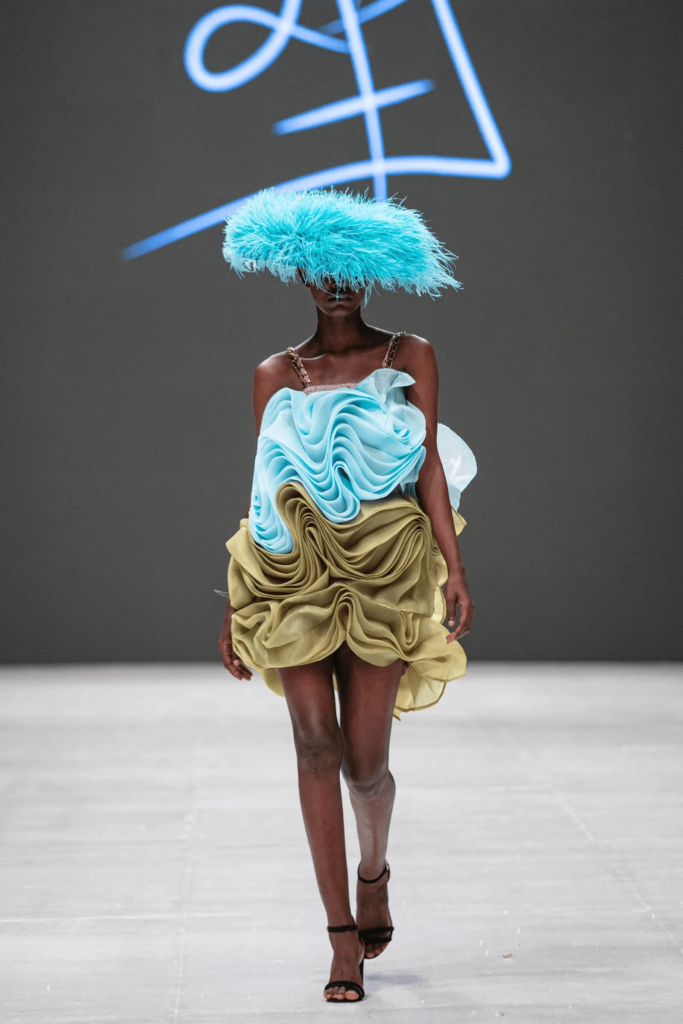
Baker: What are your thoughts on the various African fashion weeks?
Deiner: SA Menswear Week is a passion. We need to put away the rubbish fashion weeks. Nigeria has 24 fashion weeks, yet if you ask, the only one that makes sense is Lagos Fashion Week. Omoyemi Akerele, founder of Lagos Fashion Week and Style House Files, has a drive and understanding of fashion as a business that works. This is what we agree on. It’s not a fashion show for a night out. We do not believe it is entertainment but is to grow business.
There are very few fashion weeks in Africa that are good. There is Lagos, SA Menswear Week, and SA Fashion Week, which are really the only true fashion weeks. Why everyone comes back to our platform is because we are a family that comes together and have a good time. We don’t do paper contracts. It is one of the ultimate social experiments. Can we do business with a handshake and keep your word? It is productive in my mind.
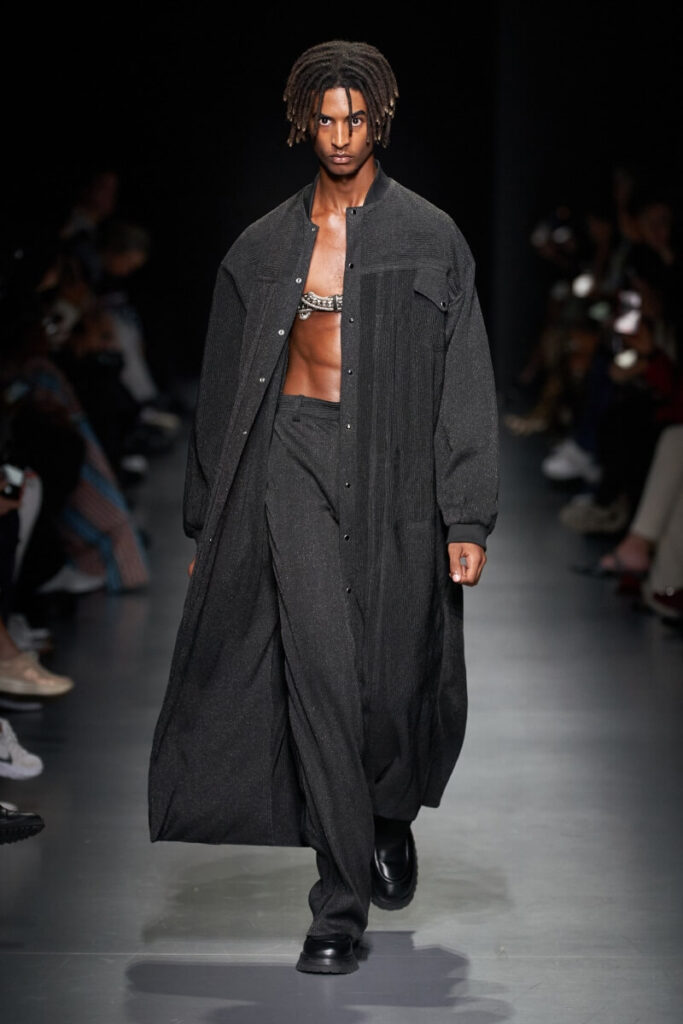
Baker: How are African fashion designers faring globally?
Deiner: A lot of global brands are looking at Africa and looking at the next generation of designers. When most people think of African fashion, they think of wax prints, but it is no longer block prints. The designers making waves globally have taken a unique signature globally, not just colorful block prints—Iniye Tokyo James, Thebe Magugu, Maxhosa designs. Thebe Magugu and Orange Culture from Nigeria are so far ahead and are being picked up in department stores and worn by celebrities. It is leaps and bounds ahead of those doing colorful prints. It is the print and not design anymore. A lot of the brands are starting to look at brands like Tokyo James. At Menswear Fashion Week, fifty percent of our push is abroad, and we are starting to really get there. I was in New York, and we were discussing what African designers could bring to New York.
At Menswear Week, fifty percent of our push is abroad. It is great because they are amazing fashion, and the quality of the garments and fabric are on par with everything else in the rest of the world, for half the price. It is unique and has a story. The reach is picking up also. UK GQ is covering Menswear Week.
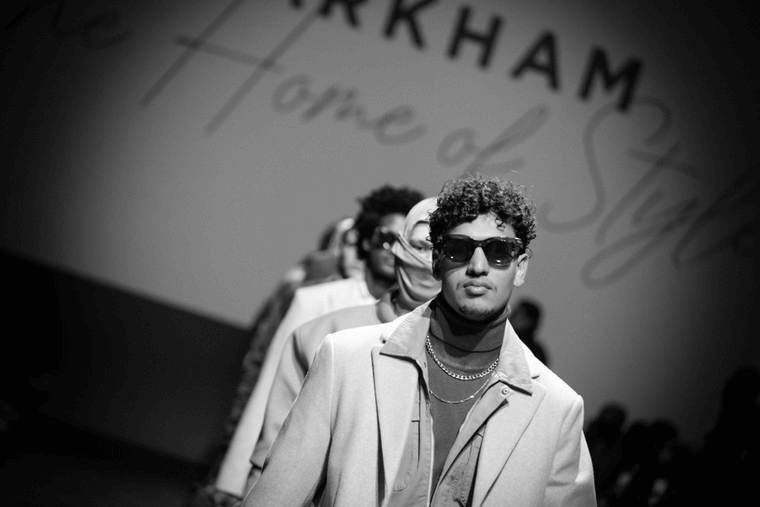
Baker: What do buyers look for, and what are the challenges associated with buying?
Deiner: What it looks like and what it costs are what buyers look for. We have put African designers into stores, and they meet all the requirements but then become complacent. We might miss the deadlines. There is a lot of education needed, and we are working with partners like the International Trade Center to educate designers on processes for when you start exporting. You’ve got to be able to deliver.
Baker: Can you give us more information on the Week of Fashion?
Deiner: There are so many platforms in South Africa, so I thought to give the next generation of designers a space to show in one place without conflicts. A biannual celebration of fashion in South Africa. It includes South Africa Menswear Week, South Africa Fashion Week, Capsule, and Open Studio. We have put together a seven-day event with multiple shows. So, if we have five shows in one week, some designers could show in multiple shows as part of The Week of Fashion. It is something we are launching. For us, there is no commercial gain. We are breaking even, as it is a passion and a social project.
Baker: Can designers from outside South Africa showcase at SA Menswear Fashion Week?
Deiner: One thing we’ve been proud of with Menswear Week is that it has been a feeder from other fashion weeks in Africa. For example, we’ve had two Nigerians, one Kenyan, and others. The criteria are the same no matter where you are from. New designers must have a three-year track record. You must tell us how you sell, even if it’s online. We then send your information to our 12-member panel, who decide whether you should show or not. If turned down, we want to know why so we can provide feedback to the designer. The panel consists of journalists, print and graphic people, our fashion week team, and buyers. It’s not everyone sitting around the table and deciding together; each panelist decides independently. If at least ten say yes, we then put you in the lineup of those wanting to show. We look at where there are gaps and fit the designers into the schedule. Otherwise, we put you on the waiting list. Menswear Week is completely free, whereas most other fashion weeks require an entry fee. If you are well received during fashion week, you are automatically brought back.
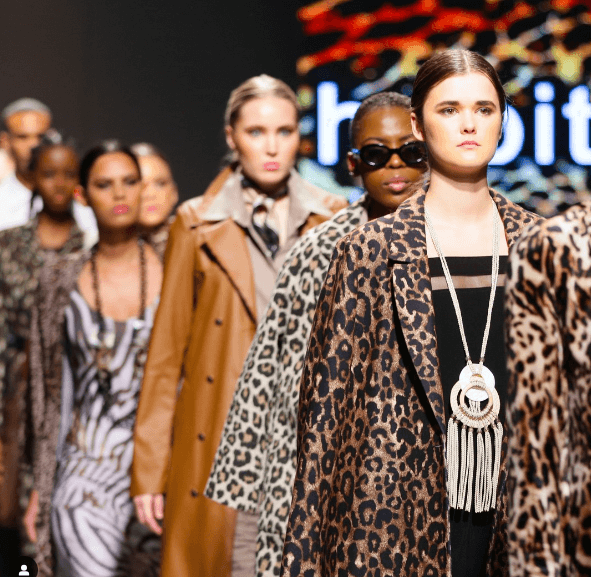
Baker: Is it exclusively menswear?
Deiner: When we launched SA Menswear Fashion Week, it was exclusively menswear. My team was the first to champion gender-fluid collections, so some designers showed that. At least nine menswear to one women’s wear. With the demise of Cape Town Fashion Week, we had women requesting to showcase, so we added women’s collections and now have two days dedicated to womenswear at fashion week. We are integrating the schedule.
Baker: Who are the big names in men’s fashion in Africa?
Deiner: Thebe Magugu and Kenneth Ize, winners of the LVMH Prize, Tokyo James, Rick Dusi, Orange Culture, and S.P.C.C – Sergeant Pepper Clothing Co, which moved into retail. There are many women’s wear designers, and men’s wear is slightly less competitive but has more demand.
Baker: Who are the buyers buying from Africa?
Deiner: In real terms, absolute zero compared to global fashion weeks.
Baker: Why is that?
Deiner: New York, London, Paris, and Milan fashion weeks have been around for a long time, with the oldest platform in Africa being about twenty-four years old. By the time Lagos Fashion Week takes off, buyers have already been on the road for about a month. There is fatigue. Even if they’ve only done London Fashion Week, they are fatigued by the time African fashion weeks take off. Getting into Africa is also a bit more difficult. We must negotiate three months in advance for visas to Africa. One or two buyers come out to Lagos Fashion Week.
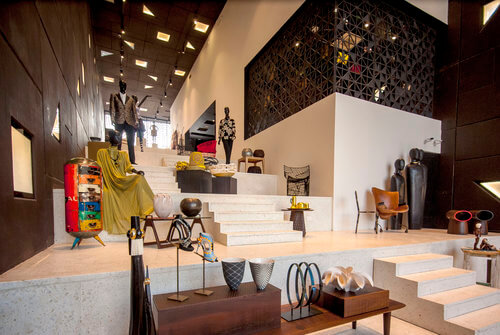
Baker: Does Africa have store buyers who attend the various African fashion weeks?
Deiner: There has not been a culture of boutiques and department stores around Africa. Alara, a chic lifestyle store in Nigeria filled with top local and international brands, was launched by Omoyemi Akerele and stocks brands like Dior and carries Nigerian and South African designers. We have some big online fashion sites in South Africa. There is an online store owned by Hanneli Rupert, the daughter of the South African mogul Johann Rupert, who is the Richemont Chairman. Richemont’s global brands include A. Lange & Söhne, Azzedine Alaïa, Baume & Mercier, Buccellati, Cartier, Chloé, Dunhill, Jaeger-LeCoultre, Montblanc, Piaget, Vacheron Constantin, Van Cleef & Arpels, and others. Hanneli Rupert opened Merchants on Long & Okapi, a concept store stocking ethically produced African designs, art, and fashion, as well as her own handbag line. We have two to three of our designers in her store.
Paradise Garage carries a lot of African designers who produce everything in Africa, including South African and Nigerian designs.
Baker: In your estimation, what is the real value for fashion week designers?
Deiner: You couldn’t pay for the public relations you get out of fashion week. With your own public relations, you have this exponential coverage. Leverage that and post campaigns with your own advertising while also being responsive. We have brought a lot of manufacturing into South Africa, with the pandemic making it easier because logistics were difficult.
Baker: What type of media coverage do you get?
Deiner: The only glossy fashion magazine now in South Africa is Glamour. GQ is a partner. Vogue carries our galleries. Franca Sozzani, the former editor-in-chief of Vogue Italia, had an insane passion for African fashion, but she passed away. We have great coverage from SA Menswear Week with online sites that resonate with an audience that suits the designers. Bella Naija and Fashion Ghana also provide great coverage.
Baker: What’s your last word about the industry?
Deiner: It’s getting better.

